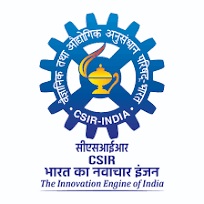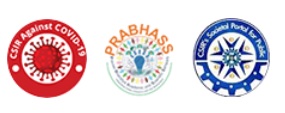CSIR CASE 2023 Sample Question Paper Combined Administrative Services Examination
Organisation : CSIR Council of Scientific & Industrial Research
Exam Name : Combined Administrative Services Examination – 2023 (CASE – 2023)
Document Type : Sample Question Paper
Year : 2023
Question Paper here : https://csir.cbtexamportal.in/
Website : https://www.csir.res.in/career-opportunities/recruitment/archive-recruitment
CSIR CASE Sample Question Paper
Disclaimer: It is only a sample question paper, to familiarize candidates with the pattern of examination. The number of questions, difficulty level, type of questions do not have resemblance with the actual question paper. Candidates are advised to read the Advertisement again carefully related to scheme of examination, Syllabus, Marks etc.
PAPER -1 : 150 Marks
Section 1 : General Awareness – 100 Marks
Section 2 : English Language & Comprehension – 50 Marks
Related / Similar Question Paper : Karnataka Examinations Authority M PHARM/PHARMD Question Paper

General Awareness Question
Q 1). Who among the following was called the ‘Father of Indian Unrest’ by Britishers?
(A) Lokmanya Tilak
(B) Jawaharlal Nehru
(C) Mahatma Gandhi
(D) Sardar Vallabhbhai Patel
Q 2). Who among the following was the author of Anand Math?
(A) Raja Ram Mohan Roy
(B) Bal Gangadhar Tilak
(C) Rabindranath Tagore
(D) Bankim Chandra Chattopadhyay
Q 3). British Government appointed an Indian Statutory Commission to decide India’s Political future, this commission is also known as?
(A) Cripps Mission
(B) Elbert Commission
(C) Hunter Commission
(D) Simon Commission
Q 4). The Bhoodan Movement was started by whom among the following?
(A) Vinoba Bhave
(B) Sardar Vallabhbhai Patel
(C) Morarji Desai
(D) Mahatma Gandhi
Q 5). Which of the following movements immediately followed the partition of Bengal?
(A) Civil Disobedience Movement
(B) Non-cooperation Movement
(C) Swadeshi Movement
(D) Ghadar Movement
Q 6). Who composed the Vedas?
(A) Aryas
(B) Valmiki
(C) Dravidians
(D) Mahakavi Kalidas
Q 7). Which kingdom was founded by two brothers, Harihara and Bukka?
(A) Vijayanagara
(B) Devagiri
(C) Warangal
(D) Bahmani
Q 8). The first function of the constitution is to provide a set of basic rules for which of the following?
(A) determining the national flag
(B) determining the national song
(C) determining the criminal laws
(D) coordination in the society
Q 9). The National Education Policy – 2020 suggests for which of the following?
(A) 5+3+3+4 structure for pre-school and school system
(B) 5+3+3+4 for school system and college system
(C) 5+3+3+4 for higher education
(D) 2+4+5 +3 system for school education
Q 10). TRAI is a regulatory body for which of the following sectors?
(A) Insurance
(B) Roads & Buildings
(C) Electricity
(D) Telecom
Q 11). The preamble of the constitution says that India will be ___.
(A) secular and democratic
(B) secular, democratic, sovereign, republic and socialist
(C) secular and socialist
(D) sovereign and socialist
Q 12). Our Constitution believes that:
(A) Laws are our strength.
(B) Diversity is our pillar of our country.
(C) Uniformity is needed to make the country powerful.
(D) Strong states are not necessary to develop.
Q 13). The Government of India Act-1935 provided for which of the following?
(A) the national flag and national song
(B) Indian federation of the provinces and princely states
(C) the criminal and civil laws
(D) coordination in the Indian society
Q 14). How many lists of functions for the Union and State Governments have been given in the Indian Constitution?
(A) 2
(B) 5
(C) 3
(D) 4
Q 15). Who among the following is a winner of Nobel Prize 2023 for Literature?
(A) Aleksey Yekimov
(B) Katalin Kariko
(C) Drew Weissman
(D) Jon Fosse
Q 16). Eurasia’s tallest active volcano Klyuchevskaya Sopka has erupted recently. This volcano is situated in which of the countries?
(A) Egypt
(B) Russia
(C) China
(D) Taiwan
Q 17). India has been unanimously elected as a member representing Asian region in the Executive Committee of Codex Alimentarius Commission (CAC) held at Food and Agriculture Organisation (FAO) Headquarters at which of the following places?
(A) Rome, Italy
(B) Paris, Italy
(C) Zurich, Switzerland
(D) Budapest, Hungary
Q 18). In the latest Global Hunger Index (GHI) for 2023, India has been ranked at which position out of 125 countries?
(A) 102
(B) 107
(C) 109
(D) 111
Q 19). Recently, Government of India has announced mandatory blending of Compressed Bio-Gas in which of the following segments of CGD Sector?
(A) CNG (Transport) & PNG (Domestic)
(B) PNG (Domestic) & LPG (Domestic)
(C) CNG (Transport) & LPG (Domestic)
(D) PNG (Domestic) & Carbon Dioxide
Q 20). Cabinet Committee on Economic Affairs approves inclusion of Jamrani Dam Multipurpose Project of which of the following states/UTs under PMKSY-AIBP?
(A) Ladakh
(B) Bihar
(C) Uttar Pradesh
(D) Uttarakhand
English Language Comprehension Question
Read the passage given below:
On the basis of your understanding of the above passage, answer the questions given below. [Question No 21 to 25]
Machine Learning (ML) stands as the pinnacle of computational intelligence, driving innovation by allowing systems to autonomously acquire knowledge and adapt. Within ML, deep learning, an advanced subset, employs neural networks with multiple layers to analyze intricate patterns. Reinforcement learning, a dynamic approach, enables machines to make decisions through a process of trial and error, mirroring aspects of human cognition. The ethical dimensions of ML, especially in addressing biases within algorithms, have gained prominence. Quantum Machine Learning, at the cutting edge, explores the fusion of quantum computing principles with ML to tackle complex problems. As ML continues its ascent, the intricate interplay of algorithms, data, and ethical considerations becomes increasingly vital for shaping a responsible and effective technological landscape.
Q 21). What is deep learning in Machine Learning?
(a) Learning from labeled datasets
(b) Advanced subset using neural networks with multiple layers
(c) Decision-making through trial and error
(d) Quantum computing principles
Q 22). Which ML approach mirrors aspects of human cognition by making decisions through trial and error?
(a) Supervised learning
(b) Unsupervised learning
(c) Quantum Machine Learning
(d) Reinforcement learning
Q 23). What is the focus of Quantum Machine Learning?
(a) Addressing biases in algorithms
(b) Fusion of quantum computing principles with ML
(c) Learning from data
(d) Analyzing intricate patterns
Q 24). Why have ethical considerations gained prominence in Machine Learning?
(a) To hinder progress in the field
(b) To explore complex problems
(c) Due to biases within algorithms
(d) Quantum computing principles
Q 25). What is the primary purpose of reinforcement learning in ML?
(a) Learning from labeled datasets
(b) Making predictions
(c) Decision-making through trial and error
(d) Analyzing intricate patterns
Q 26). Which of the following is NOT a correct example of the future perfect tense?
(a) By tomorrow, she will have finished her project.
(b) They will have traveled to five countries by the end of the year.
(c) At this time next week, he would have completed the marathon.
(d) By the time you arrive, I will have already left.
Q 27). Identify the INCORRECT usage of the past perfect tense:
(a) Before we left, they had prepared a delicious meal.
(b) By the time the train arrived, she had already bought her ticket.
(c) They were tired because they had been working all day.
(d) He have completed the assignment before the deadline.
Q 28). Choose the sentence with the correct preposition.
(a) She is good at painting.
(b) The cat is sleeping in the chair.
(c) He apologized about his mistake.
(d) We are fond of to travel.

Q 29). Which of the following sentences has used adjectives and adverbs correctly?
(a) He spoke very loud.
(b) She is an amazing beautiful singer.
(c) The remarkably talented musician performed wonderfully.
(d) She completed the race more quicker than expected.
Q 30). Which of the following is correct as conditional sentence?
(a) If you will study harder, you would pass the exam.
(b) If I would have known, I will have come.
(c) If she had time, she would have joined us.
(d) Unless you won’t finish your work, you can’t go out.
Download CASE Question Paper
Paper I : https://www.pdfquestion.in/uploads/pdf2024/42067-2.pdf
Paper II : https://www.pdfquestion.in/uploads/pdf2024/42067-1.pdf